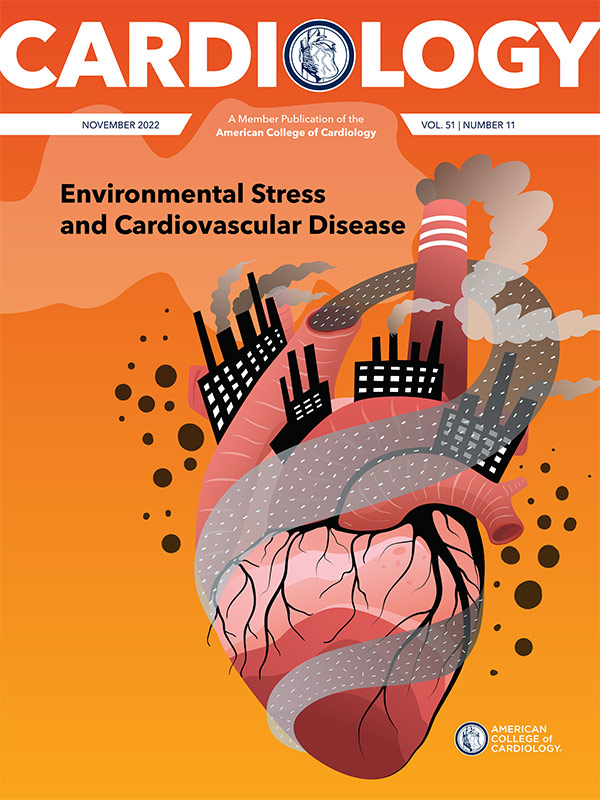New in Clinical Documents | New ACC Health Policy Statement Offers Solutions For Career Flexibility in Cardiology

With cardiovascular clinicians working more hours annually than those in many other medical specialties and burnout on the rise, there is growing interest in finding ways to incorporate greater flexibility into all phases of the cardiology career. To that end, the ACC's new Health Policy Statement on Career Flexibility in Cardiology offers "system, policy, and practice solutions" to improve well-being, increase retention and career longevity, and encourage greater diversity, equity and inclusion across the career span.
"By writing this workforce [Health Policy Statement], the ACC highlights the need for our profession to focus attention on flexible careers and to create solutions that promote cardiologists' personal and professional well-being while preserving excellence in clinical care," write Mary Norine Walsh, MD, MACC, et al.
Highlights from the statement, include solutions designed to help reconcile fellowship training requirements with demands of parenting and family life, as well as navigate career re-entry or redirection. Importantly, the authors note that "cardiologists choosing flexible hours and work commitments should not be penalized unnecessarily in work assignments, promotion, leadership opportunities, compensation, and so on."
Additionally, the statement offers solutions pertaining to accreditation policies within cardiology programs and includes focused strategies for clinicians in the late stages of their careers, and cardiovascular professionals holding leadership positions within industry or health systems. Advice for human resource teams, as well as cardiology leadership, is provided with the goal of successfully implementing and sustaining these changes.
"The ACC believes this can be accomplished fairly through the prospective development of flexible/part-time hours, leave and re-entry policies, changes in job description supported by overarching cultural change, and equitable compensation and opportunity plans," write Walsh and colleagues. "Only then can we build a well-rounded cardiology workforce that enjoys satisfactory work-life integration."
ACC Principles For Career Flexibility in the Practice Of Cardiology
- All cardiologists should have access to flexibility in hours and work commitments according to personal needs, preferences, and expertise, while being mindful of patient, program, team, and institutional needs.
- Flexibility in hours and work commitments will assist all cardiologists with providing value across their career lifespan.
- This flexibility should be supported by prospectively determined, transparent policies regarding career flexibility, including full-time, part-time, and leave options.
- Cardiologists' options for career flexibility should be transparent in terms of the approach, methodology, and calculations used to determine individual hours and work commitments.
- These policies should include strategies and formulae that offer flexibility to accommodate different hours and work commitments for a wide range of circumstances. For example, these policies might apply to those involved in childbearing and rearing, midcareer cardiologists who wish to pursue other interests or career transitions, and aging cardiologists and those with health concerns who wish to scale back work hours and restrict or eliminate call responsibilities while continuing to contribute to patient care, research, or education.
- Cardiologists with physically demanding roles should have pathways to transition into other opportunities in patient care, research, or education.
- Cardiology human resource policies should explicitly address and incorporate strategies to accommodate hour-reduction and leave policies.
- Cardiology human resource policies should minimize unwarranted systemic differences based solely on hours and work type.
- Cardiologists choosing flexible hours and work commitments should not be penalized unnecessarily in work assignments, promotion, leadership opportunities, compensation, and so on.
- Cardiologists returning to full-time work following a temporary reduction in work hours should not be penalized or discriminated against.
- Cardiology leadership should be responsible and held accountable for providing and supporting flexibility in hours and commitments.
- Cardiology leadership should be responsible and held accountable for recognizing and mitigating the effects of unconscious or implicit bias (sexism, racism, ageism) against those who elect to pursue career flexibility, including reduced hours/work commitments.
- Accreditation policies for cardiology training programs should reconcile demanding training requirements with the demands of parenthood and other aspects of early-career family life so as to ensure that both can be successfully pursued simultaneously.
- Cardiology and subspecialty fellowship training lasts between 3 and 7 years and generally occurs in the fourth decade of life, which often coincides with early family life. Therefore, flexibility in fellowship training and redesign of training paradigms should be considered by the ACC, the American Board of Internal Medicine, and relevant subspecialty stakeholders.
- Policies and practices should be adopted to ensure that aging cardiologists are able to fully engage in all aspects of their job descriptions. Organizations may wish to support this by including testing to detect/quantify cognitive/technical decline. This includes cognition, dexterity, "functional" practice assessment, ability to evolve, and behavioral adaptability. However, such evaluations should not be indiscriminately implemented without a structured evaluation process.
- Policies and practices should be adopted regarding malpractice liability coverage and policy tails that allow flexibility for those in later career stages to continue to practice and to volunteer their services.
- Cardiology programs should provide policies and support systems for physician wellness, practice support, career counseling, retraining, and so on, to reduce stress and burnout related to poor work-life balance.
- Work assignments following busy overnight shifts (e.g., post STEMI call) should be adjusted to mitigate the possible effects of fatigue on patient care and physician well-being.
Clinical Topics: Cardiovascular Care Team, Prevention, Stress
Keywords: ACC Publications, Cardiology Magazine, Work-Life Balance, ACC History, Vocational Guidance, Career Choice, Burnout, Professional, Career Mobility, Workforce
< Back to Listings


